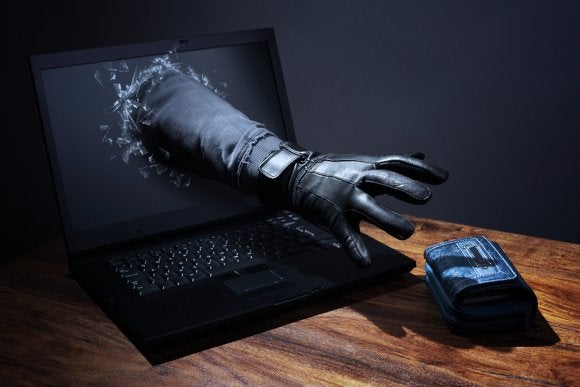-
Understanding Maryland’s Medical Marijuana Regulations [INFOGRAPHIC]
There are 23 U.S. states that have laws legalizing medical marijuana, with the addition of Washington, D.C. and Guam. Maryland passed a medical marijuana bill in 2014 after much debate. Currently, there are not any medical marijuana dispensaries open in the state, but it’s expected that licenses will be granted in 2015. Neither patients nor caregivers are legally allowed to grow medical marijuana themselves; instead, it must be provided by a state-licensed dispensary. Growers must pay $250,000 for a two-year license, while dispensaries have to pay $80,000 for the same. Take a look at this infographic to learn more about regulations on medical marijuana in Maryland, and how they stack up to other states. If you are considering getting into cannabusiness, it’s easy to see why you need a lawyer with expertise in marijuana legalization in Rockville . Please share with your friends and business associates.

-
Can Medical Marijuana Help with Epilepsy?
Across the country, states have authorized medical marijuana prescriptions to patients suffering from debilitating conditions, including epilepsy, cancer and post-traumatic stress disorder. In 2014, Maryland passed legislation for marijuana legalization in Rockville and across the state. While researchers have focused their studies toward the effects of marijuana on adult patients, doctors are now prescribing medical marijuana to children with similar debilitating conditions.
As this CNN report illustrates, marijuana legalization has helped young patients suffering from catastrophic epilepsy. In particular, this video shares a father’s experience in administering a form of marijuana that doesn’t get his son high, but effectively treats his seizures. After switching from other medications to medical marijuana, this six-year-old patient was able to trade taking 22 pills per day to one a half marijuana pills per day. As a result, he is able to play, laugh and eat like other six-year-old boys.
-
Defining White Collar Crime
The term white-collar crime was coined in 1939, but the phrase now refers to a range of fraud crimes involving government or business professionals. White-collar crimes near Rockville are not victimless crimes, as a single financial scam can potentially destroy a company or cost a family its entire life savings. With technology continuously progressing, white-collar crimes have become more sophisticated than ever before.
Telemarketing, advance fee, and identity theft are some of the most common scams facing consumers today. In a telemarketing scheme, the caller asks the victim to provide personal or financial information. Some warning signs that the telemarketing call is a scam is the caller urging the victim to “act now,” offering a free gift, or saying the victim doesn’t need to check out the company with anyone. In identity theft white-collar crimes, perpetrators assume their victims identities to commit fraud or other criminal acts. To prevent identity theft, attorneys recommend keeping ATM receipts, credit statements, and bank statements in secure places instead of throwing them away. In an advance fee scheme, the victim pays someone a fee in anticipation of receiving a large sum of money. This scam can be avoided by staying away from opportunities that appear too good to be true.

-
Answers to Common Questions About Maryland’s Marijuana Regulations
On April 14, 2014, Maryland became the 18 th state to decriminalize possession of marijuana. Even though the District of Columbia joined in Maryland’s initiative of marijuana legalization, Maryland will be the first state in the Mid-Atlantic region to legalize medical marijuana. While members of the medical community have welcomed the news of this legislation, most people still have some logistical questions about medical marijuana in Rockville .
What did SB 364 do?
Prior to SB 364, possession of less than 10 grams of marijuana resulted in penalties of $500 in fines and up to 90 days in jail. SB 364 changes the criminal penalties for possessing less than 10 grams with a civil fine, similar to a traffic citation.Are there penalties for subsequent offenses?
While a first offense of possession of less than 10 grams of marijuana now results in a $100 fine, a second offense is punishable by up to a $250 fine. A third or subsequent offense can result in fines up to $500 and requires the offender to attend a drug education program and a referral to an assessment for substance abuse.
assessment for substance abuse. What are penalties for minors?
Minors have different penalties for possession of marijuana , so it’s important for minors to discuss these consequences with a criminal defense attorney. The punishment for minors possessing marijuana is similar to punishment for underage drinking and driving. A minor may be required to participate in a supervised work program, attend drug education programs, and forfeit his or her license for a certain time period.Is paraphernalia decriminalized?
While SB 364 does decriminalize marijuana possession, it does not address possession of drug paraphernalia. As a result, the penalties for possessing drug paraphernalia in Maryland remain the same.How can someone handle a marijuana charge?
SB 364 is a new Maryland law, so most people aren’t sure of their rights when facing marijuana possession charges. For this reason, it’s a good idea for someone charged with possession to consult with a criminal defense lawyer. A lawyer can help explain Maryland’s new laws in relation to a particular client’s case. -
What Do Prospective Dispensary Owners Need to Know About Maryland’s Medical Marijuana Law?
When lawmakers signed legislation to legalize medicinal marijuana in Maryland last April, they created deadlines for regulations to be completed. As a result, the Marijuana Policy Project became responsible for creating guidelines for licensing doctors, growers and distributors in Maryland. Even though the Marijuana Policy Project didn’t meet this deadline, they still currently offer guidance for new Maryland cannabusiness owners on how to meet state and federal obligations.
In October, the Marijuana Policy Project hosted an information seminar for prospective cannabusiness owners in Maryland. This seminar allowed physicians as well as prospective growers and dispensers to learn what was needed to obtain cannabusiness licenses. In this video, Rachelle Young of the Marijuana Policy Project and prospective cannabusiness owners describe their experience with the seminar and Maryland’s recently passed medical marijuana legislation.
-
Initiative 71 and DC’s Marijuana Laws
Last week, D.C. Mayor Muriel Bowser released several documents to help educate the public about DC’s Initiative 71 that legalizes posession of minimal amounts of marijuana for personal use.
- Frequently Asked Questions
- Initiative 71 Factsheet
- Initiative 71 Infographic

